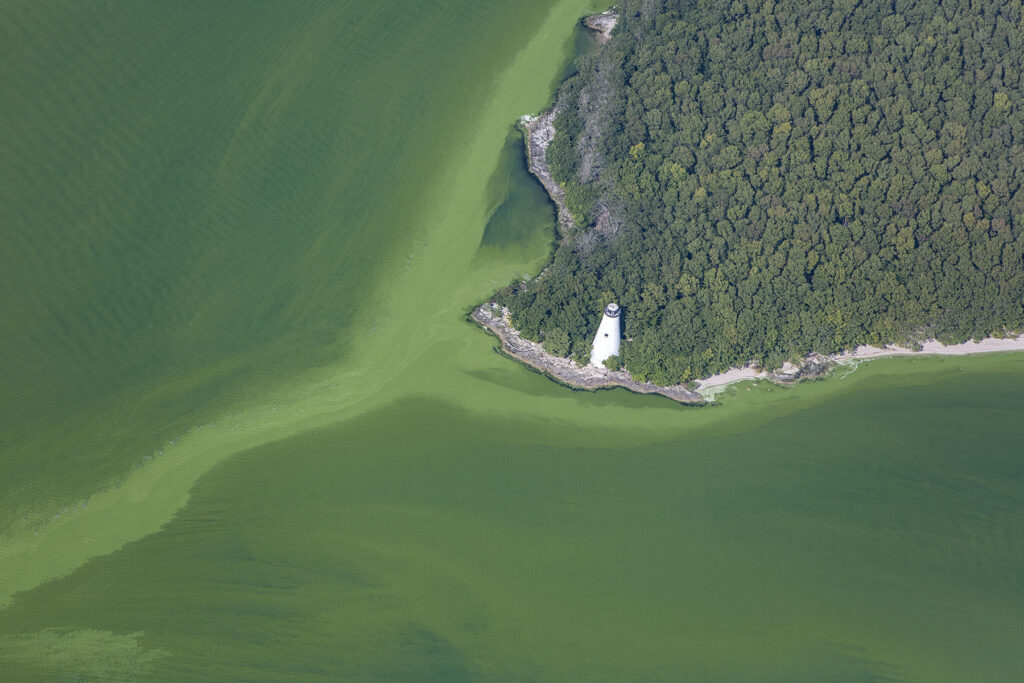
NOAA has announced funding for 17 new research projects around the country to better understand and predict harmful algal blooms (HABs) and improve our collective response to them.
NOAA’s National Centers for Coastal Ocean Science (NCCOS) is allocating $10.3 million in fiscal year 2020 (FY 20) to fund HAB research across the nation. Approximately $4 million will cover the first year of 11 new projects, and $6.3 million will go to 16 projects already in process. This brings the total portfolio of active HAB projects funded under NOAA’s PCMHAB, ECOHAB, and MERHAB programs to 48. New projects will begin in Alaska, California, Delaware, Florida and the Gulf of Mexico, the Great Lakes, New England, the Pacific Northwest, Puerto Rico and the US Virgin Islands. A full list of the new grant awards is available online.
Award recipients will conduct research to enhance detection of HAB toxins and test the use of HAB control methods in marine and freshwater; model toxin movement through marine food webs; improve HAB forecasts; and investigate the social and economic impacts of HABs.
The U.S. Integrated Ocean Observing System (IOOS) Office allocated $1 million for five pilot projects across six of its regional associations in FY20, to enhance the nation’s capacity for monitoring and detection of these blooms. The pilot projects focus on data integration and information services about the extent, toxicity, and length of blooms will inform decisions of coastal managers, seafood harvesters and aquaculture growers, drinking water utilities, animal stranding networks and others.
IOOS also awarded $325,000 in FY20 through its Ocean Technology Transition program, an ongoing multi-year cooperative grant program, for the first year of a project that will benefit harmful algal bloom monitoring efforts. The funded project will advance ongoing efforts to gather water samples for harmful algal bloom monitoring using autonomous surface vehicles.
These funding decisions across the suite of NCCOS and IOOS programs represent a coordinated effort to maximize advances in HAB monitoring and forecasting. Prior NOAA-funded research produced tools that managers use regularly to detect, monitor, forecast and respond to the blooms and their toxins.
